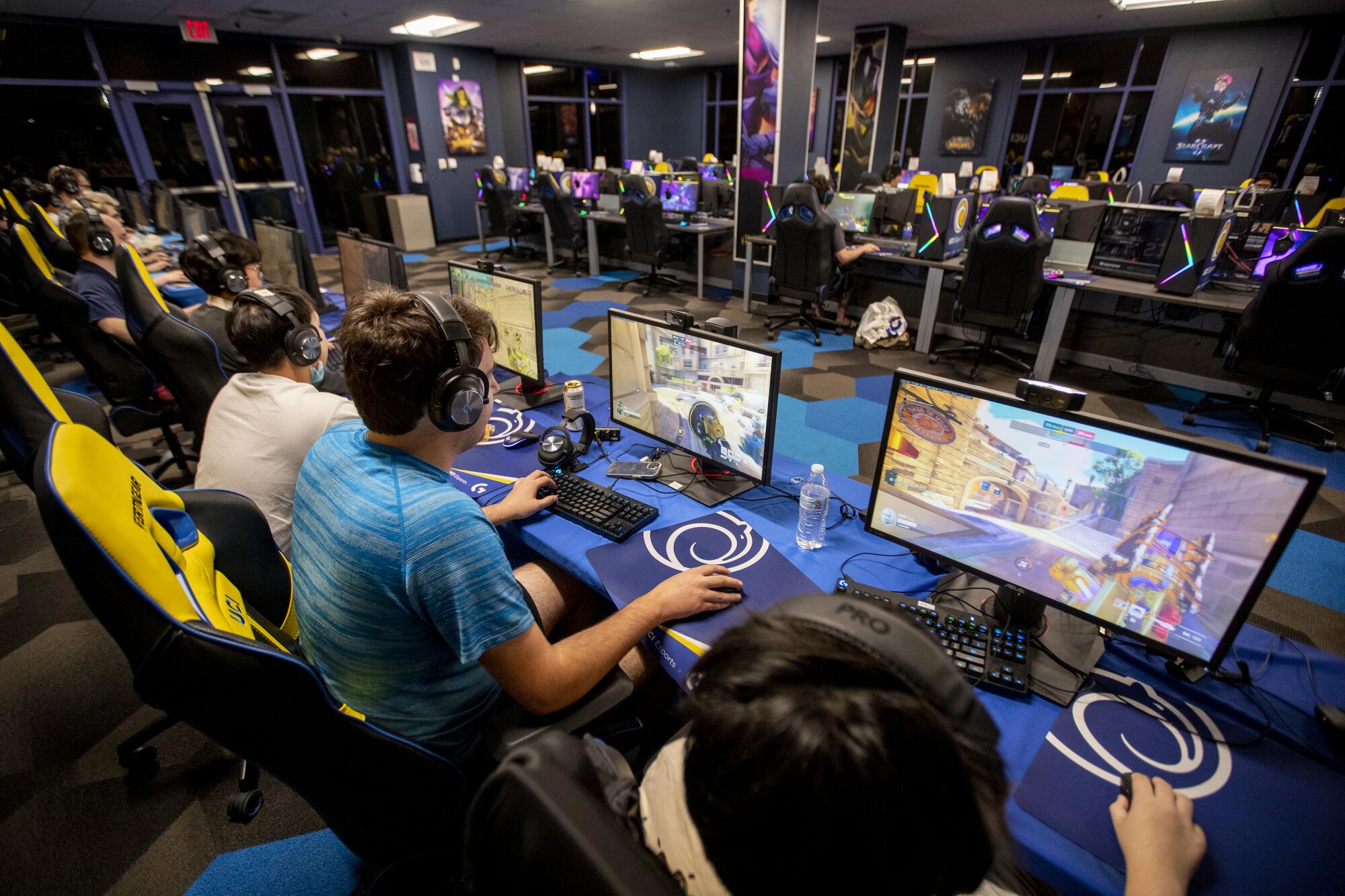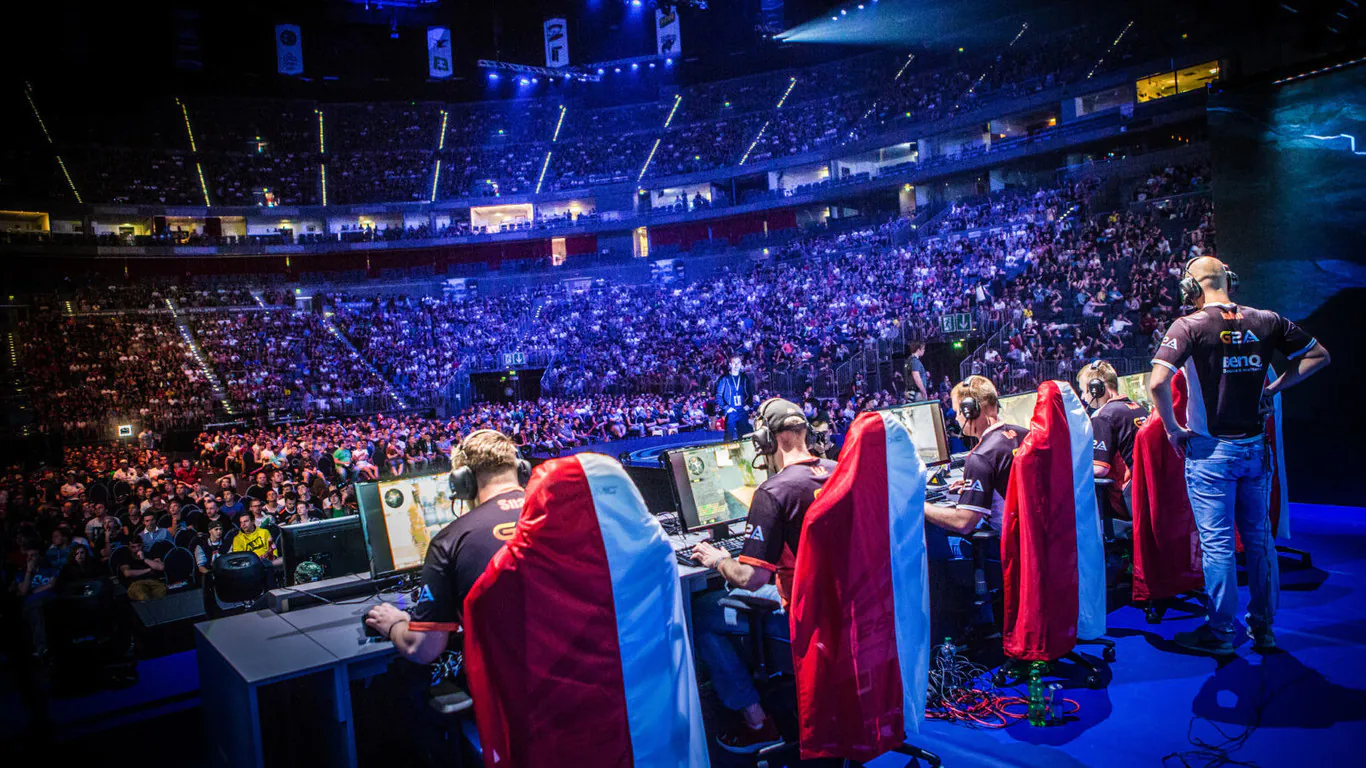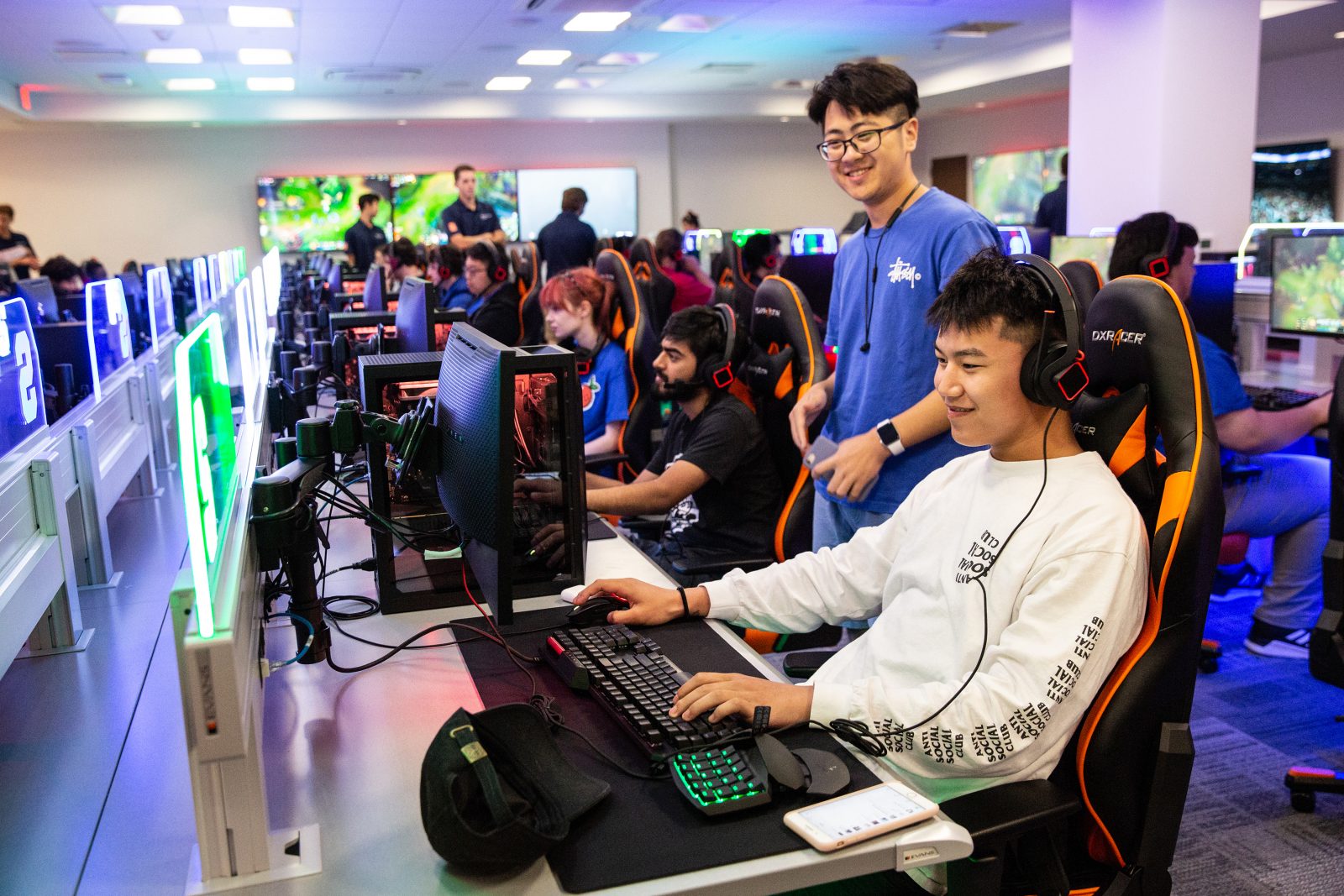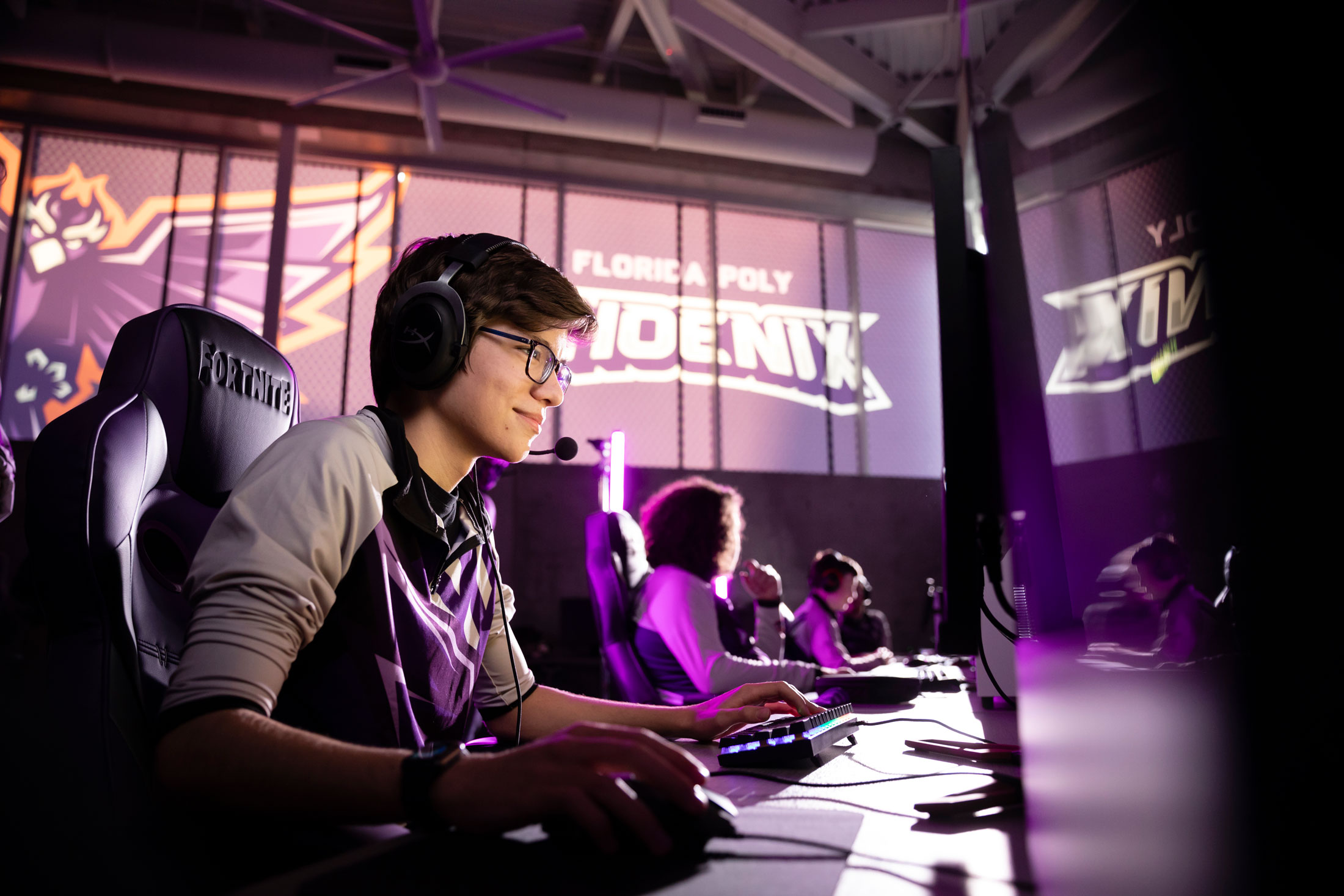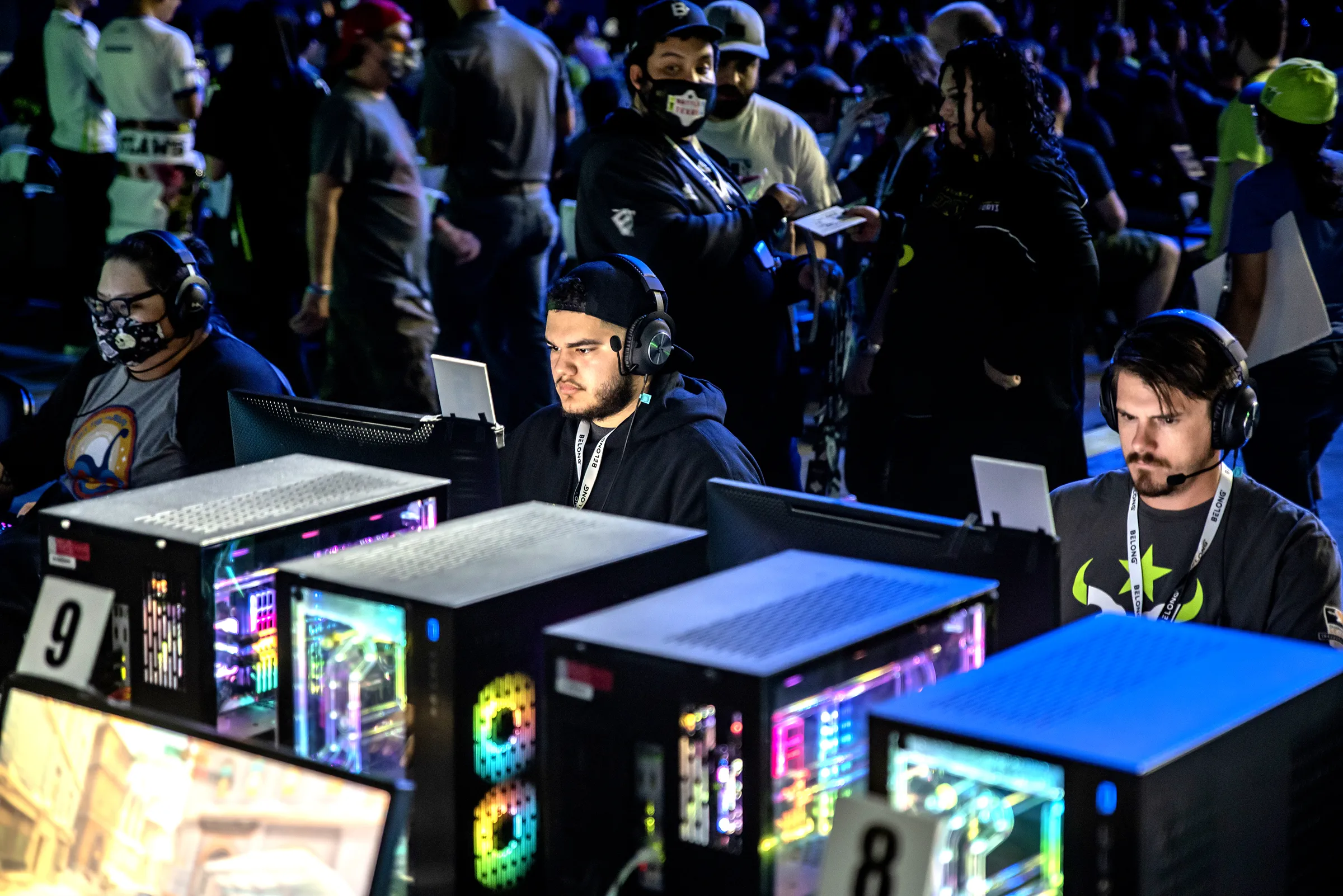Ultimate Guide To Make An Esports Website
Discover the steps to make an esports website with our easy-to-follow guide.
When embarking on the journey to create an esports website, the first and most crucial step is to understand your audience and the purpose of your site. This foundational knowledge will guide every decision you make, from design to content, and ensure that your website resonates with its intended users. Start building now!
Identifying The Target Demographic For Your Esports Website
The esports audience is diverse, encompassing a wide range of ages, interests, and levels of engagement. To create a site that appeals to them, you need to pinpoint who your primary users will be. Are they hardcore gamers who follow every tournament? Casual fans who enjoy watching highlights? Or perhaps players looking for a community and tips to improve their skills?
To identify your target demographic, consider the following:
- Age range: Esports fans can be anywhere from kids to adults. Tailor your content and design to the age group that is most likely to visit your site.
- Gaming preferences: Different audiences may prefer different games or genres. Knowing which games to focus on can help you attract the right crowd.
- Level of engagement: Some visitors might be interested in in-depth analysis and statistics, while others might prefer quick updates or entertainment-focused content.
Determining The Type Of Content And Features That Resonate With Your Audience
Once you have a clear picture of your audience, it's time to think about the content and features that will keep them coming back. Your website should offer value that they can't easily find elsewhere. This could include:
- Exclusive interviewswith players or industry insiders.
- In-depth guidesand strategies for popular games.
- Up-to-date newson teams, tournaments, and game updates.
- Interactive elementslike polls, quizzes, or fantasy leagues.
Remember, the content should be engaging and cater to the interests of your audience, encouraging them to interact with your site and share it with others.
Establishing Clear Goals For Your Esports Website
Your website needs a clear purpose to succeed. Are you looking to create a hub for esports news, a community forum, or perhaps an online store for gaming merchandise? Setting specific, measurable, achievable, relevant, and time-bound (SMART) goals will help you focus your efforts and measure success.
Some potential goals for your esports website might include:
- Building a community: Aim to reach a certain number of active forum members or social media followers within a year.
- Becoming an authority: Target a specific number of daily visitors or page views, indicating that users trust your site for esports content.
- Generating revenue: If monetization is a goal, set targets for merchandise sales, ad revenue, or sponsorships.
By understanding your audience and establishing clear goals, you lay the groundwork for a successful esports website that stands out in the competitive online arena. With this foundation in place, you can move on to selecting the right platform and domain to bring your vision to life.
Selecting The Right Platform And Domain
When embarking on the journey to create an esports website, one of the most critical decisions you'll make is choosing the right platform and domain name. These elements are the foundation of your online presence and can significantly impact the success and growth of your esports platform.
Comparing Website Builders And Content Management Systems
There are numerous options available when it comes to building your esports website, each with its own set of features and benefits. Here's a comparison of popular choices:
- Website Builders: Platforms like Wix, Squarespace, and Weebly offer user-friendly interfaces with drag-and-drop functionality. They are ideal for beginners and can help you get your site up and running quickly. However, they may lack the flexibility and customization options needed for a complex esports site.
- Content Management Systems (CMS): WordPress, Joomla, and Drupal are examples of CMS that offer more control and customization. WordPress, in particular, is known for its vast plugin ecosystem, which can be incredibly beneficial for adding esports-specific features.
- Custom Solutions: For those with technical expertise or the budget to hire developers, a custom-built website can provide the most tailored experience. This option allows for complete freedom in design and functionality but requires more time and resources.
When choosing between these options, consider the following:
- Ease of Use: How comfortable are you with web design and development?
- Customization: Do you need specific features or design elements for your esports site?
- Support: What level of customer service and technical support does the platform offer?
- Cost: What is your budget for website development and maintenance?
Choosing A Memorable And Relevant Domain Name
Your domain name is your address on the internet, and it's crucial to choose one that is both memorable and relevant to your esports brand. Here are some tips for selecting the perfect domain name:
- Keep it Short and Simple: A concise domain name is easier to remember and less prone to typos.
- Use Keywords: Including words like 'esports', 'gaming', or 'tournament' can improve search engine visibility.
- Avoid Numbers and Hyphens: These can be confusing and are often misunderstood when sharing your domain verbally.
- Check for Trademarks: Ensure that your chosen domain name doesn't infringe on any existing trademarks to avoid legal issues.
- Use an Appropriate Domain Extension: While .com is the most popular, there are other extensions like .gg, .esports, or .game that might be more fitting for an esports website.
Considering Scalability And Budget Constraints
As your esports website grows, you'll need a platform that can scale with your increasing traffic and content demands. It's essential to consider the long-term scalability of the platform you choose. Additionally, be mindful of your budget. While some platforms may offer low initial costs, they might have higher fees for advanced features or increased traffic.
- Scalability: Does the platform offer plans that grow with your site's traffic and complexity?
- Cost of Ownership: Consider not only the upfront costs but also any ongoing fees for hosting, plugins, or premium features.
- Monetization Options: If you plan to monetize your website, ensure the platform supports your chosen methods, whether it's through advertising, sponsorships, or merchandise sales.
By carefully selecting the right platform and domain name, you lay a solid foundation for your esports website. This foundation will support your site's growth, help you reach your target audience, and provide the flexibility to adapt to the ever-evolving world of esports.
Designing Your Esports Website
Creating a compelling and functional website is crucial for capturing the attention of esports enthusiasts. Your website's design is the first impression visitors will have of your brand, so it's essential to make it count. Here's how to design an esports website that's both visually appealing and user-friendly.
Creating A Compelling Logo And Visual Identity
Your logois the cornerstone of your website's visual identity. It should be unique, memorable, and reflective of the esports culture. Consider hiring a professional graphic designer who can translate your brand's values and personality into a visual icon. A good logo is scalable, works in different contexts (like social media or merchandise), and stands out among competitors.
When developing your visual identity, think about the colors, fonts, and imagery that will represent your brand. Colors can evoke emotions and convey messages; for example, red can signify passion and energy, while blue can represent trust and professionalism. Choose a color palette that resonates with your audience and is consistent across all your branding materials.
Developing A Style Guide For Consistency
A style guide is a set of standards for the design of your website. It includes guidelines for your logo usage, color palette, typography, imagery, and other visual elements. A well-defined style guide ensures that your website remains consistent in its look and feel, which is crucial for brand recognition.
Your style guide should cover:
- Logo placement and usage rules
- Primary and secondary color palettes
- Typography, including font styles, sizes, and hierarchy
- Imagery styles and usage (e.g., photo treatments, iconography)
- Any other visual elements that are part of your brand identity
By adhering to a style guide, you'll create a cohesive experience for your visitors, no matter where they encounter your brand.
Planning User-Friendly Navigation And Content Layout
The navigation of your website should be intuitive and straightforward. Visitors should be able to find what they're looking for with ease. A good practice is to organize your content into clear categories and use a navigation bar that's accessible from every page.
When planning your content layout, consider the following:
- Homepage: This is where you make your first impression. Highlight your most important content, such as upcoming tournaments, recent match results, or featured videos.
- Content Pages: Each page should focus on a single topic or category. Use headings and subheadings to break up text and make it easy to scan.
- Sidebar: Use this space for additional navigation, important links, or promotional content.
- Footer: Include essential information like contact details, social media links, and legal disclaimers.
Remember to design with mobile users in mind. A responsive design ensures that your website looks great and functions well on all devices, from desktops to smartphones.
By focusing on a strong visual identity, a consistent style guide, and user-friendly navigation, you'll create an esports website that not only looks professional but also provides a seamless experience for your visitors.
Essential Features For An Engaging Esports Website
When building an esports website, it's crucial to include features that not only attract visitors but also keep them engaged. An esports website should be a hub for everything related to your gaming community or organization, from tournament updates to player profiles. Here are some essential features to consider integrating into your esports website to create a dynamic and interactive experience for your audience.
Integrating Match Reports And Tournament Schedules
Match reportsand tournament schedulesare the backbone of any esports website. They provide fans with up-to-date information on past games and upcoming events. To make this feature stand out:
- Use a clear and concise formatfor schedules, making it easy for users to find the information they need.
- Provide detailed match reportsthat include scores, key moments, and player statistics.
- Implement a calendar systemthat allows users to sync tournament dates with their personal calendars.
- Include important events in your website, a good idea should be including collaboration with other Esport sitesto cover all the events, for example EsportSource is a brand new journal open to collaboration.
Enabling Community Features Like Leaderboards And Social Networking
A sense of community is vital in esports. Features like leaderboards and social networking can foster this by encouraging interaction among users. Consider the following:
- Leaderboardsthat showcase top players or teams, creating a competitive environment.
- Forums or chat roomswhere fans can discuss games, strategies, and events.
- Social media integration, allowing users to share content and updates directly from your website.
Incorporating Multimedia Content Such As Live Streams And Videos
Multimedia content is essential for engaging an audience that consumes a lot of digital media. To enhance your website with multimedia:
- Embed live streamsof tournaments or gameplay, keeping fans on your site longer.
- Create a video librarywith highlights, interviews, and analysis that users can browse.
- Optimize video contentfor various devices, ensuring a smooth viewing experience on both desktop and mobile.
Offering Merchandise And Prize Pool Crowdfunding Options
Merchandising and crowdfunding are excellent ways to monetize your esports website while also providing value to your audience. To implement these features:
- Set up an online storewhere fans can purchase team merchandise, gaming gear, and other related products.
- Introduce crowdfundingfor prize pools to allow the community to directly support their favorite teams and tournaments.
- Ensure secure payment optionsand a straightforward checkout process to encourage purchases.
By incorporating these essential features, your esports website will not only provide value to your audience but also create a vibrant and interactive community around your brand. Remember to keep user experience at the forefront of your design to ensure that visitors not only come to your site but also stay and engage with your content.
Launching And Optimizing Your Esports Website
Once you've poured your passion and hard work into building your esports website, it's time to unveil it to the world. But before you hit that launch button, there are critical steps to ensure your site is ready for prime time. From testing to SEO, these final touches will help your website stand out and attract the audience it deserves.
Testing For Functionality, Usability, And Performance
Before your website goes live, it's essential to conduct thorough testing. This process involves checking every link, feature, and page to ensure everything works as intended. Here's a checklist to guide you through this phase:
- Functionality Testing: Verify that all forms, sign-up processes, and interactive elements function correctly.
- Usability Testing: Gather a group of users to navigate your site and provide feedback on their experience.
- Performance Testing: Check your website's loading times and responsiveness across different devices and browsers.
- Security Testing: Ensure that your website is secure from potential threats by implementing SSL certificates and other security measures.
Implementing SEO Best Practices For Visibility
Search Engine Optimization (SEO) is crucial for making your esports website easily discoverable by your target audience. Here are some SEO best practices to implement:
- Keyword Optimization: Use relevant keywords throughout your content, but avoid keyword stuffing.
- Meta Tags: Craft descriptive meta titles and descriptions for each page to improve click-through rates from search engine results.
- Mobile Optimization: Ensure your website is mobile-friendly, as search engines favor responsive designs.
- Quality Content: Regularly publish high-quality, original content that provides value to your visitors.
- Backlinks: Build a network of backlinks from reputable sites to boost your website's authority.
Launching Your Website And Monitoring For Continuous Improvement
With testing complete and SEO strategies in place, it's time to launch your esports website. Here's how to approach the launch:
- Soft Launch: Consider a soft launch to a limited audience to gather initial feedback and make any necessary adjustments.
- Announcement: Use social media, email newsletters, and other marketing channels to announce the official launch of your site.
- Analytics: Set up web analytics tools to track visitor behavior, traffic sources, and engagement metrics.
Best HTML Templates For Esports Websites
GameZone - Esports And Gaming HTML Template
A dynamic and visually appealingtemplate with dedicated sections for tournaments, teams, and individual player profiles. Responsive design for seamless viewing across various devices. Integration with social media and streaming platforms for enhanced connectivity.
ESport - Gaming HTML Template
Modern and sleek design catering to esports teams, tournaments, and gaming communities. Feature-rich homepage with sections for latest news, upcoming events, and team showcases. Smooth animations and transitions for an engaging user experience.
PlayerX - A High-powered Theme For Gaming And ESports
Robust HTML template with a focus on individual players and their achievements. Well-organized sections for streaming, match highlights, and personal player profiles. Customizable components to tailor the website to your specific branding.
Geco - ESports HTML Template
Clean and intuitive design suitable for esports teams, leagues, and gaming communities. Integration with popular esports widgets and tools for real-time updates. In-built pages for match schedules, team rosters, and tournament brackets.
ESportz - Professional ESports Club HTML Template
Feature-packed template with dedicated sections for teams, players, and event promotions. Interactive elements such as countdowns, progress bars, and team member profiles. Easily customizable for branding consistency.
Arena - Responsive Gaming HTML Template
Versatile template suitable for esports tournaments, gaming blogs, and community forums. Unique layouts for showcasing sponsors, partners, and merchandise. Optimized for SEO to enhance online visibility.
Make An Esports Website - People Also Ask
What Is The Number 1 Esports Org?
Some of the well-known and successful esports organizations include Team Liquid, Fnatic, Evil Geniuses, and FaZe Clan, among others. Rankings can change over time, so it's a good idea to check the latest information from reputable esports news sources or ranking websites.
How Do I Find Esports Org?
To find esports organizations, you can follow these steps:
Online Search:
- Use search engines to look for top esports organizations.
- Explore esports news websites and forums for discussions about popular organizations.
Social Media:
- Follow esports teams and players on social media platforms like Twitter, Instagram, and Facebook.
- Engage in esports communities and discussions on platforms like Reddit.
Esports Events:
- Watch esports tournaments and events, and take note of the organizations that participate.
- Check team rosters and sponsor information during broadcasts.
Esports Directories:
Explore esports team directories or databases that list various organizations and their details.
Is Global Esports Indian?
India has a growing esports scene, and there are Indian esports organizations and tournaments, but it's not accurate to describe the entire global esports industry as Indian. Esports is a global phenomenon with participation from various countries and regions.
Conclusion
After the launch, it's important to keep an eye on your website's performance and make improvements where needed. Regularly update your content, optimize for new SEO trends, and listen to your community's feedback. By staying proactive, you can ensure your esports website remains competitive and continues to grow its audience.
Remember, building and launching an esports website is just the beginning. The digital landscape is always evolving, and so should your site. Keep learning, adapting, and striving for excellence, and your esports website will thrive in the dynamic world of online gaming.
